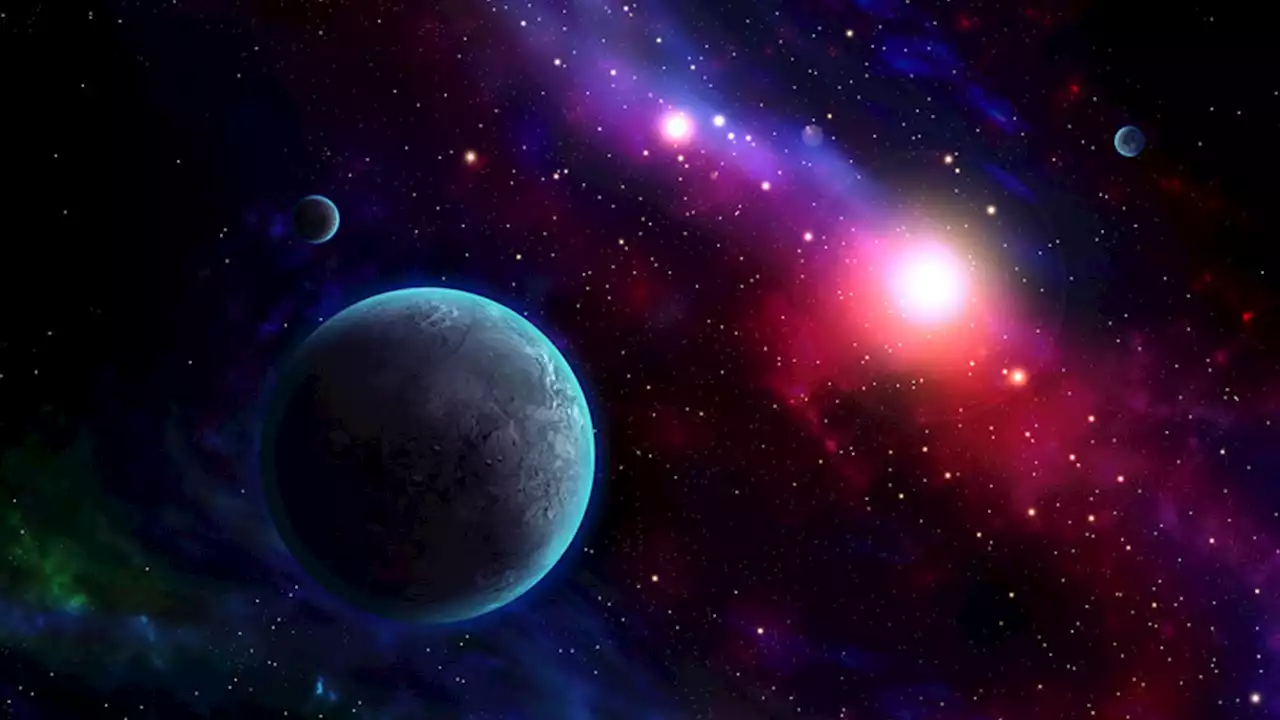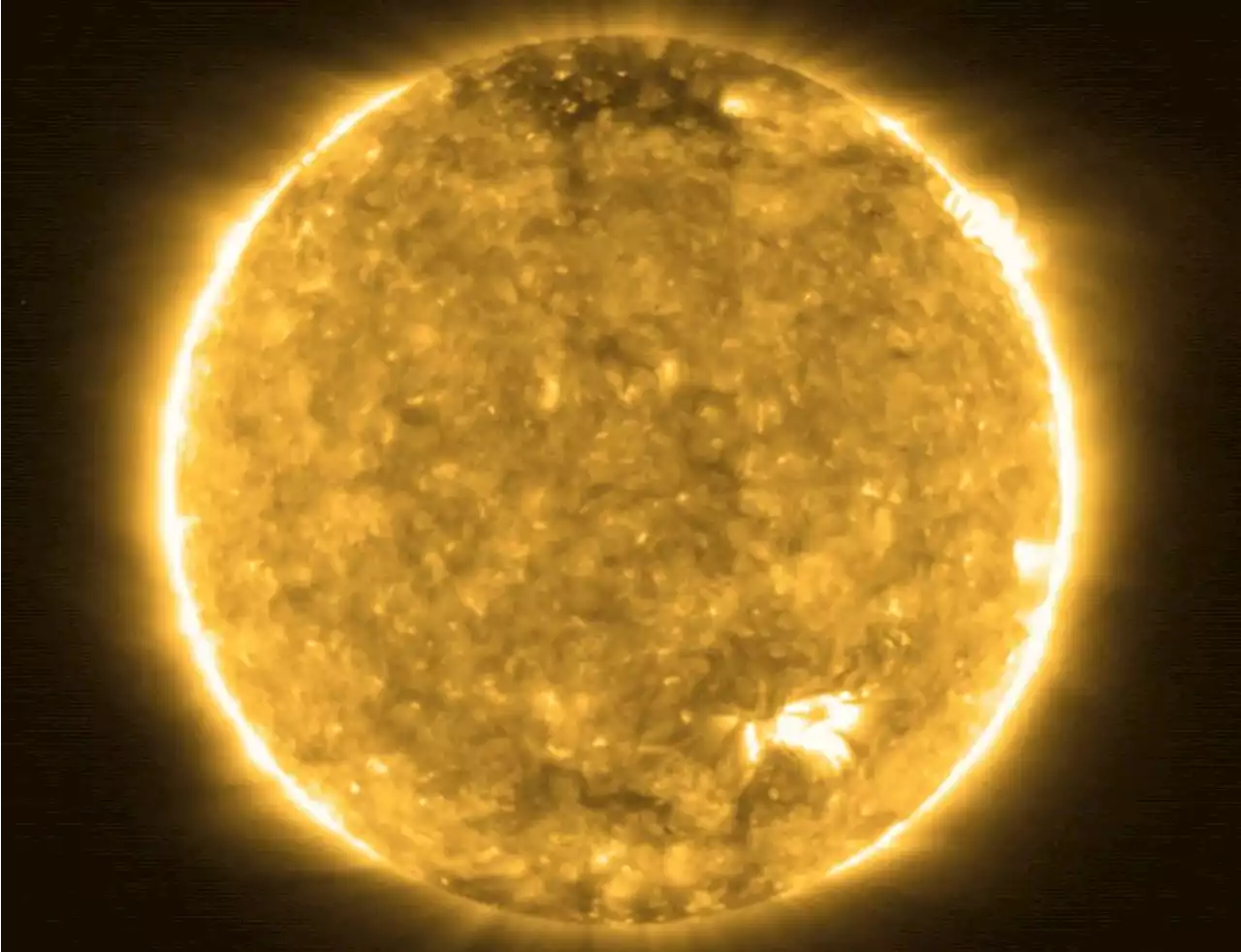Scientists analyzed samples of meteorites that came to Earth from Mars.
Meteorites that smashed into Mars during the earliest days of the inner Solar System may have carried an ocean's worth of water to the planet.
Researchers from the University of Copenhagen in Denmark analyzed the concentration of a rare chromium isotope, known as chromium-54, in samples from meteorites that came to Earth from Mars, aThey estimated that early meteorite showers likely brought enough water to Mars to create a 300-meter-deep ocean.Lead researcher Martin Bizzarro and a team of colleagues conducted their sample analyses to estimate how much water was deposited on the Red Planet.
Mars' upper layer isn't made up of large tectonic plates, as is the case on Earth, meaning the materials on its surface shouldn't be churned and regurgitated in the same way they have on our planet over millennia. As such, meteorite materials should be pretty well preserved on the red planet's surface. Meanwhile, the rocks from the mantle below should still show what Mars was like before meteorites bombarded it.
"It’s a bit like DNA," Bizzarro told New Scientists in an interview. "Carbonaceous-type asteroids have a very distinctchromium isotope composition relative to the inner solar system." The scientists analyzed the chromium-54 in samples of meteorites that came from Mars' surface and mantle and ended up on Earth. By doing so, they could estimate the total mass of the meteorites that collided with Mars during its early period. They outlined their findings in
United States Latest News, United States Headlines
Similar News:You can also read news stories similar to this one that we have collected from other news sources.
 Mirror Earth: the best bets for planets that are like Earth but not EarthAre there other planets like Earth out there? If so, how far away are they, and could we ever reach them to potentially form colonies in the future?
Mirror Earth: the best bets for planets that are like Earth but not EarthAre there other planets like Earth out there? If so, how far away are they, and could we ever reach them to potentially form colonies in the future?
Read more »
 This is when the Sun and Earth will die, according to scientistsScientists believe they may have figured out when the Sun and Earth will die, though there are a few different theories.
This is when the Sun and Earth will die, according to scientistsScientists believe they may have figured out when the Sun and Earth will die, though there are a few different theories.
Read more »
 Mars' clouds are strangely Earth-like, despite wildly different atmospheresRobert Lea is a science journalist in the U.K. whose articles have been published in Physics World, New Scientist, Astronomy Magazine, All About Space, Newsweek and ZME Science. He also writes about science communication for Elsevier and the European Journal of Physics. Rob holds a bachelor of science degree in physics and astronomy from the U.K.’s Open University. Follow him on Twitter sciencef1rst.
Mars' clouds are strangely Earth-like, despite wildly different atmospheresRobert Lea is a science journalist in the U.K. whose articles have been published in Physics World, New Scientist, Astronomy Magazine, All About Space, Newsweek and ZME Science. He also writes about science communication for Elsevier and the European Journal of Physics. Rob holds a bachelor of science degree in physics and astronomy from the U.K.’s Open University. Follow him on Twitter sciencef1rst.
Read more »
 “Stabilizing Feedback” Confirmed by MIT Scientists – Earth Can Regulate Its Own Temperature Over MillenniaEarth can regulate its own temperature over millennia, new research finds. Scientists have confirmed that a “stabilizing feedback” on 100,000-year timescales keeps global temperatures in check. From global volcanism to planet-cooling ice ages and dramatic shifts in solar radiation, the Earth’s c
“Stabilizing Feedback” Confirmed by MIT Scientists – Earth Can Regulate Its Own Temperature Over MillenniaEarth can regulate its own temperature over millennia, new research finds. Scientists have confirmed that a “stabilizing feedback” on 100,000-year timescales keeps global temperatures in check. From global volcanism to planet-cooling ice ages and dramatic shifts in solar radiation, the Earth’s c
Read more »
 Burglars steal 300-pound safe from Saratoga homeThe Santa Clara County Sheriff’s Office said residential burglaries are up 34%.
Burglars steal 300-pound safe from Saratoga homeThe Santa Clara County Sheriff’s Office said residential burglaries are up 34%.
Read more »
 YSL Trial Will Call 300 Witnesses to Testify in JanuaryYoung Thug and Gunna are two high-profile defendants in the case and both of the Grammy-nominated artists have denied the charges.
YSL Trial Will Call 300 Witnesses to Testify in JanuaryYoung Thug and Gunna are two high-profile defendants in the case and both of the Grammy-nominated artists have denied the charges.
Read more »
